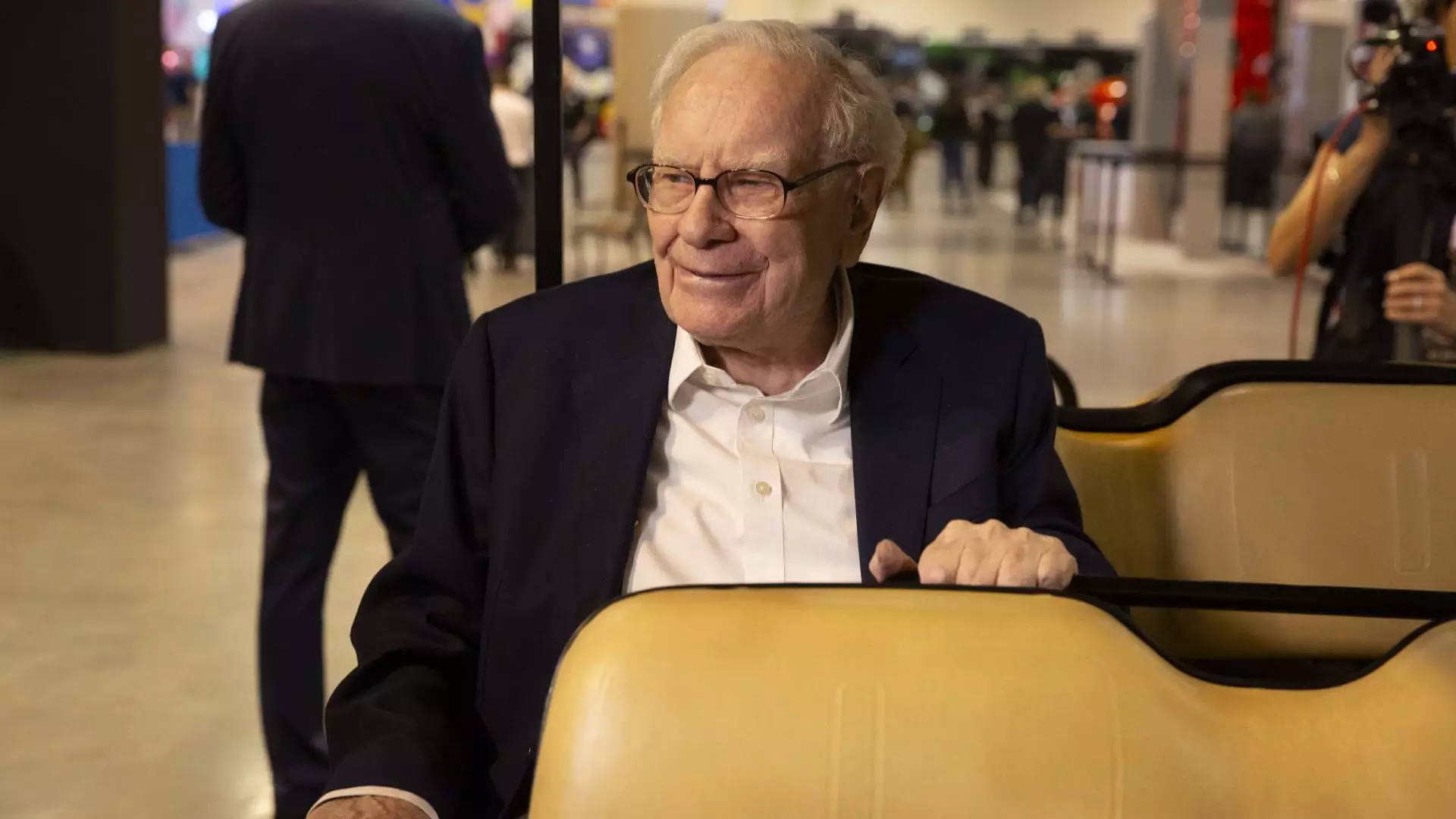Berkshire Hathaway, the investment conglomerate led by the legendary Warren Buffett, continues to intrigue investors and financial analysts alike, particularly in light of its recent earnings report which showcased a remarkable surge in operational performance. However, the spotlight also illuminates a growing concern regarding an expanding cash reserve that raises questions about the conglomerate’s investment strategies. Let’s dissect the latest news about Berkshire Hathaway to understand what it means for shareholders and the broader financial landscape.
Berkshire Hathaway’s earnings report for the closing quarter reveals staggering growth, with operating earnings hitting $14.5 billion—a staggering 71% increase from the same period last year. A significant contributor to this success was the insurance sector, where underwriting profits surged an impressive 302%, equating to $3.4 billion. This performance signifies not only a means of risk management but also the company’s adeptness at capitalizing on market opportunities within a crucial sector of its business model.
However, this success in operational profit contrasts starkly with the performance of Berkshire’s investment portfolio. The investment gains plummeted drastically, dropping from $29.1 billion to merely $5.2 billion in the fourth quarter. This decline raises eyebrows among investors, especially given Berkshire’s history as a value-oriented investment powerhouse. Such a dramatic drop suggests that Berkshire has been strategically cautious in an environment that many perceive as overheated in terms of stock valuations.
While soaring operating profits might instill confidence, the expansion of Berkshire Hathaway’s cash reserves has become a focal point of speculation. The cash pile reached an eye-popping $334.2 billion, marking a continual rise from $325.2 billion in the previous quarter. This trend, wherein Berkshire sold far more equities than it purchased for the ninth consecutive quarter, prompts critical inquiries about the conglomerate’s strategy moving forward.
Many shareholders who have anticipated reinvestment opportunities may find themselves perplexed, requesting clarity on whether this cash hoard is indicative of Warren Buffett’s paradigm shift. In his annual letter, Buffett reassured stakeholders that this cash accumulation does not signify a departure from his investment philosophy. Instead, he positioned it as a prudent strategy to navigate high valuations and market uncertainty. He stated his commitment to equities but admitted that “often, nothing looks compelling,” highlighting the challenging environment for investors seeking valuable opportunities.
Another important aspect of this ongoing discussion is Warren Buffett’s endorsement of his successor, Greg Abek. As the industry watches closely, Buffett’s comparison of Abek to the late Charlie Munger communicates an implicit confidence in future strategies under his stewardship. Each statement Buffett makes strengthens the narrative that while current investment opportunities may be limited, the long-term vision of Berkshire Hathaway remains intact.
Moreover, the absence of share buybacks during this period could indicate a deliberate attempt to conserve cash for future investments, whether that arises in the form of strategic acquisitions or stock buybacks when valuations align more closely with Buffett’s investment criteria.
Berkshire Hathaway’s performance over the past year has been impressive, with shares rallying by 25.5% in 2024, outperforming the S&P 500. This fundamental strength, coupled with strategic financial management, aligns with a broader confidence among select investors and analysts. Bill Stone, chief investment officer at Glenview Trust Company, emphasizes that this conservative approach is strategically designed to ensure the conglomerate emerges from any economic downturn poised to seize new opportunities.
The overarching sentiment indicates that while immediate actions may appear stagnant, Buffett’s strategies for safeguarding the company can position it favorably for future growth, especially if market conditions take a downturn. Thus, while some shareholders may feel impatient, faith in Buffett’s tactical decisions continues to reinforce Berkshire Hathaway’s reputation as a resilient entity in fluctuating markets.
Berkshire Hathaway’s recent earnings performance shines a light on both its operational excellence and underlying challenges in investment strategy. As Buffett navigates a high-valuation landscape with an increasing cash reserve, the conglomerate’s strategy appears to hinge on a careful balancing act between prudence and seizing opportunities. For shareholders, this enigmatic approach brings both reassurance of stability and an acute sense of anticipation for future movements. As investors, it’s crucial to remain vigilant and insightful in understanding the broader implications of such corporate decisions, especially as Berkshire Hathaway remains a hallmark of investment wisdom in the financial world.

